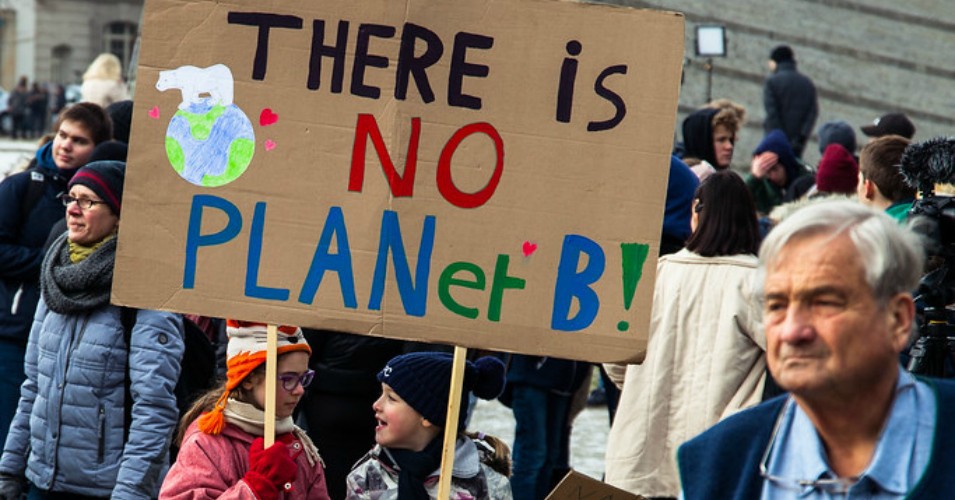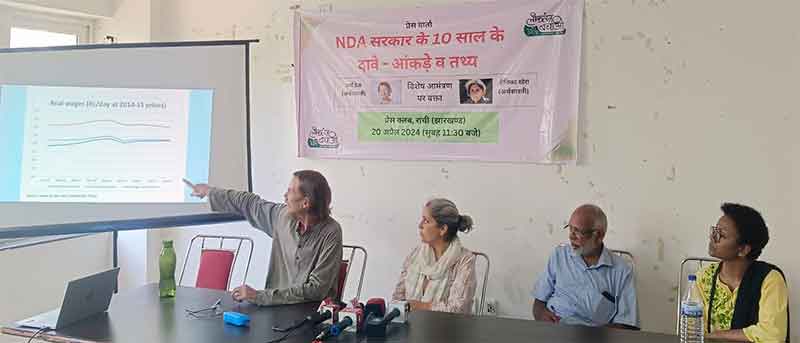A momentous statement has just been published in the British medical journal The Lancet and in 200 other health journals. It is the global equivalent of the diagnosis you never want to hear in your own doctor’s office, complete with concurring second opinions from 200 other doctors.
The statement’s authors are the editors of those journals, themselves doctors or highly trained health scientists, who have been the first to see new medical research. It shows the deep entanglement of climate, the natural world and social issues in the health of nations, and the folly of trying to remedy those issues individually.
The editors say: “The science is unequivocal; a global increase of 1.5 C above the pre-industrial average and the continued loss of biodiversity risk catastrophic harm to health that will be impossible to reverse.… We are united in recognizing that only fundamental and equitable changes to societies will reverse our current trajectory.”
That’s a prescription few countries are poised to accept, because it means our problems stem from our unhealthy and unsustainable lifestyle. Governments would have to imagine a different lifestyle for themselves and their people.
“Fundamental and equitable changes” also mean yielding power and wealth to those now powerless and poor. As the editors observe, “The consequences of the environmental crisis fall disproportionately on those countries and communities that have contributed least to the problem and are least able to mitigate the harms…. As with the COVID-19 pandemic, we are globally as strong as our weakest member.” We’ve all seen the rich nations’ rush to vaccinate themselves while leaving little or nothing for poorer nations, showing how little they value the “weakest-member” argument.
“Equity must be at the centre of the global response,” the editors write, and then make the prescription even more radical: “Wealthier countries will have to cut emissions more quickly, making reductions by 2030 beyond those currently proposed and reaching net-zero emissions before 2050. Similar targets and emergency action are needed for biodiversity loss and the wider destruction of the natural world.” When whole economies run on inequality and on reducing biodiversity, and targets are set in the safely distant future, such suggestions are unlikely to be accepted.
More challenging yet, the statement rejects the idea of piecemeal market solutions like adopting cleaner technologies: “Governments must intervene to support the redesign of transport systems, cities, production and distribution of food, markets for financial investments, health systems and much more.
“But such investments will produce huge positive health and economic outcomes. These include high quality jobs, reduced air pollution, increased physical activity, and improved housing and diet. Better air quality alone would realize health benefits that easily offset the global costs of emission reductions.”
The editors are raising these points just before two crucial international conferences. The Kunming Convention on Biological Diversity will open virtually on Oct. 11. From Oct. 31 to Nov. 12, Glasgow will host the 26th UN Climate Change Conference of the Parties — COP26.
Normally such conferences are mere talk shops, giving governments a chance to sign on to watered-down goals that they have no intention of meeting. But if those governments’ top health officials can give their political masters an earful based on the editors’ statement (backed up with the latest COVID case counts and mortality rates), they might exert some useful pressure for change.
Still, much of the effective pressure is in the other direction. Populist and authoritarian governments, while shouting about “freedom” and “personal responsibility,” have done most of the recent interventions, and not in the interests of democracy, climate change or global health.
From Hungary and Belarus to India and Sri Lanka to Brazil and Texas, such governments have used the pandemic as a pretext to seize more power and thwart sensible public-health measures like vaccinations and masks (except when useful as pandemic theatre). Their support for emissions reduction is the same as that for free and fair elections: essentially zero.
Still, it is too easy, and lazy, to blame reactionary governments, or “the corporations” or “capitalism” or “greedy politicians” as reasons to do nothing but sit back and feel superior. If keeping global temperature below 1.5 C were easy, it would have been done a generation ago. The journal editors have at least recognized today’s governments as the only likely agents of change, and offered them an urgent diagnosis of what ails their countries.
But for rulers and beneficiaries of the current system, the prescribed cure would put them out of power and out of business. They’d sacrifice the lives and health of their own people, even their own children, rather than lose power.
The suicidal stubbornness of modern governments is no excuse for inaction. The journal editors have made a persuasive case for “urgent, society-wide changes.” It is our job to make those changes. This is a struggle for life or death.
Crawford Kilian is a contributing editor of The Tyee.
Originally published by The Tyee

















































